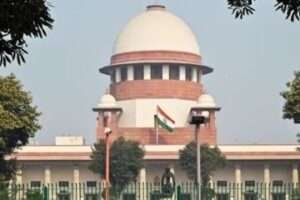PMLA- If Arrest Of Accused Isn’t Valid & Lawful As Per Section 19, An Order Of Remand Shall Fail On That Ground: Supreme Court
Case: Pankaj Bansal v. Union of India
Coram: Justice AS Bopanna and Justice Sanjay Kumar
Case No: Criminal Appeal Nos 3051-3052 of 2023
Court Observation: The Court seized the exercise under Section 167 CrPC of remanding the person arrested by the ED under Section 19(1) of the Act of 2002 has a duty to verify and ensure that the conditions in Section 19 are duly satisfied and that the arrest is valid and lawful. In the event, that the Court fails to discharge this duty in right earnest and with the proper perspective, as pointed out hereinbefore, the order of remand would have to fail on that ground and the same cannot, by any stretch of the imagination, validate an unlawful arrest made under Section 19 of the Act of 2002
This Court reiterated that Section 19 of the Act of 2002, supplemented by Section 167 Cr.P.C., provided adequate safeguards to an arrested person as the Magistrate has a distinct role to play when a remand is made of an accused person to an authority under the Act of 2002. It was held that the Magistrate is under a bounden duty to see to it that Section 19 of the Act of 2002 is duly complied with and any failure would entitle the arrestee to get released. It was pointed out that Section 167 Cr.P.C is meant to give effect to Section 19 of the Act of 2002 and, therefore, it is for the Magistrate to satisfy himself of its due compliance by perusing the order passed by the authority under Section 19(1) of the Act of 2002 and only upon such satisfaction, the Magistrate can consider the request for custody in favor of authority
Being a premier investigating agency, charged with the onerous responsibility of curbing the 19 debilitating economic offenses of money laundering in our country, every action of the ED in the course of such exercise is expected to be transparent, above board, and conforming to pristine standards of fair play in action. The ED mantled with far-reaching powers under the stringent Act of 2002, is not expected to be vindictive in its conduct and must be seen to be acting with utmost probity and with the highest degree of dispassion and fairness. In the case on hand, the facts demonstrate that the ED failed to discharge its functions and exercise its powers as per these parameters
Previous Posts
Keywords
PMLA, PMLA- If Arrest Of Accused




